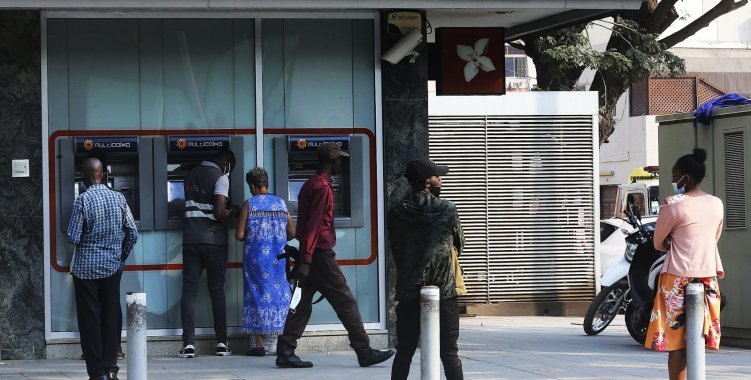"When the financial adjustment program began in 2018, no one anticipated the pandemic and the dire consequences it would have, but in terms of the reforms the country needed, Angola deserves a lot of credit for having persisted despite the terrible cost of the pandemic on its people and in the economy, including the big drop in oil in the last year and a half," said Abebe Aemro Selassie when asked by Lusa about why Angola maintained a recession this year for the sixth consecutive year.
At the end of the presentation of the report on the Economic Outlook for Sub-Saharan Africa, Selassie explained that "despite this monumental shock, the Angolan authorities have persevered in reforms and are managing to overcome the difficulties, taking significant steps to reduce macroeconomic imbalances and position the country to benefit from the oil price recovery," the country's biggest source of revenue.
"Growth remains weak, the third wave was particularly severe, and we didn't anticipate that in our forecast, which is why we've revised growth down," Selassie said, noting that "if the pandemic fades and the global economic recovery continues , the IMF is very, very confident that Angola will benefit from the fruits of all the reforms it has made in the last two years, including improving the transparency of public finance management, and in the financial sector."
The IMF predicts that the growth of 3.7 percent this year and 3.8 percent in 2022 in sub-Saharan Africa will be supported by an improvement in economic conditions in non-oil producing countries.
"The forecast for 2021 has been revised upwards, mainly due to better-than-expected prospects in non-oil resource intensive countries, where growth has improved by 1.2 percentage points to 4.7 percent, reflecting rising prices of raw materials", reads the report on the Economic Perspectives of Sub-Saharan Africa.
However, the document released in Washington adds, this growth "was eliminated by the drop in projections for non-resource-intensive countries, by 0.7 points, to 4.1 percent, the same happening with countries that export oil, whose growth forecast was revised slightly downwards, from 0.1 points, to 2.2 percent, which reflects a lower forecast for Angola".
In the document, IMF technicians point out that the improvement in forecasts for the group of countries in the region is the result of better international conditions, "which indicates that the region remains highly vulnerable to changes in the global outlook, where the two main risks are inflation in the United States and the possibility of covid-19 becoming endemic, like the flu."
Thus, African policy makers face three main challenges: "First, addressing pressing development spending needs, second, containing public debt, and third, mobilizing tax revenue in circumstances where additional measures are generally unpopular".







